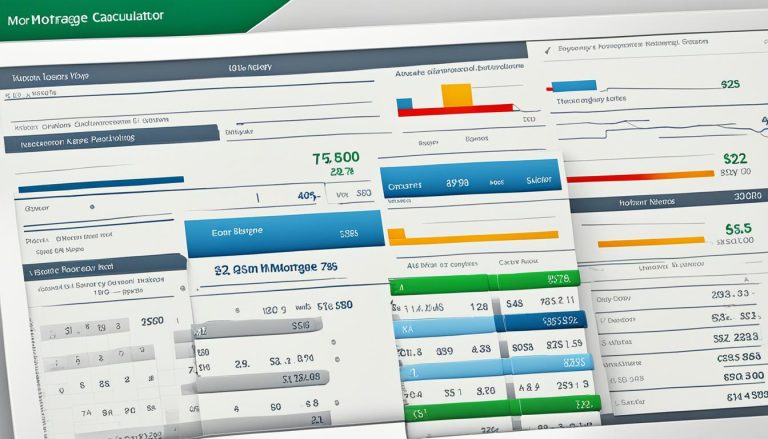A mortgage in principle (MIP), also known as an agreement in principle (AIP) or decision in principle (DIP), is a conditional approval from a lender stating how much they are willing to lend based on an initial financial assessment. This is a crucial step for homebuyers as it helps demonstrate to estate agents and sellers that they are serious buyers.
In the UK, a mortgage in principle typically lasts between 30 and 90 days. The validity period varies depending on the lender, and in some cases, it is possible to extend the agreement. If the MIP expires, buyers may need to reapply, which could involve another credit check.
Understanding how long a mortgage in principle lasts and what happens if it expires can help buyers plan their home purchase effectively.
What Is a Mortgage in Principle and Why Is It Important?

A mortgage in principle (MIP), also known as an agreement in principle (AIP) or decision in principle (DIP), is a statement from a lender indicating how much they are willing to lend based on an initial financial assessment. It is not a formal mortgage offer but serves as an estimate of borrowing power.
This document is useful for homebuyers because it helps them understand their budget before beginning their property search. It also demonstrates to estate agents and sellers that they are serious buyers, increasing their chances of having an offer accepted. Many estate agents request an MIP before allowing buyers to make an offer on a property.
Key benefits of having a mortgage in principle:
- Provides a clear idea of affordability before house hunting
- Speeds up the mortgage application process once an offer is accepted
- Strengthens a buyer’s position when negotiating with sellers
- Helps identify potential issues with borrowing capacity early on
While an MIP is not legally binding, it is a crucial step in the mortgage process and is recommended for anyone looking to buy a home.
How Long Does a Mortgage in Principle Last in the UK?
A mortgage in principle typically lasts between 30 and 90 days, depending on the lender. Some lenders offer shorter validity periods, while others extend up to three months.
Factors affecting the validity of an MIP:
- Lender policies: Each lender has different rules on how long an MIP remains valid.
- Credit check validity: Some lenders may need to refresh the credit check if too much time passes before a formal mortgage application.
- Financial circumstances: If an applicant’s income, debt levels, or credit score change, a lender may require a reassessment before proceeding with a mortgage.
If an MIP expires before a buyer finds a property, they may need to reapply. This could mean undergoing another credit check, which might affect their credit score.
Can You Extend a Mortgage in Principle?
In some cases, lenders allow borrowers to extend their mortgage in principle beyond the initial validity period. However, this depends on the lender’s policies and whether the borrower’s financial situation remains unchanged.
Steps to request an extension:
- Contact the lender before the MIP expires
- Provide updated financial details if required
- Agree to another soft credit check if necessary
If an extension is not possible, the borrower may need to reapply for a new mortgage in principle, which could involve a fresh credit check and financial review.
What Happens If Your Mortgage in Principle Expires?
If a mortgage in principle expires before a property is secured, the borrower must either request an extension or reapply. This may require:
- Submitting updated financial information, including proof of income and expenses
- Undergoing another credit check, which could slightly impact the credit score
- Receiving a different lending decision based on the current financial situation and market conditions
While some lenders may offer similar terms in a new application, others may adjust the borrowing amount due to changes in the applicant’s financial status or interest rate fluctuations.
Does a Mortgage in Principle Guarantee a Mortgage Offer?

A mortgage in principle is not a guarantee of a full mortgage offer. It is a preliminary assessment based on basic financial details, and the lender conducts more thorough checks during the formal application process.
Common reasons why a mortgage offer might be declined after an MIP:
- The borrower’s financial situation changes, such as losing a job or taking on more debt
- The property valuation does not meet the lender’s requirements
- The lender finds issues with the applicant’s credit history that were not evident in the initial soft credit check
To improve the chances of securing a mortgage, borrowers should ensure their financial situation remains stable and avoid making major financial commitments before completing the mortgage process.
What Factors Can Affect the Validity of a Mortgage in Principle?
The validity of a mortgage in principle (MIP) can be affected by several factors, including changes in financial circumstances, lender policies, and market conditions. Although an MIP is typically valid for 30 to 90 days, certain factors may lead to its early expiration or require reassessment before a full mortgage offer is granted.
Changes in Employment or Income
Lenders base a mortgage in principle on an applicant’s current income and employment status. If a borrower changes jobs, experiences a reduction in salary, or moves from permanent employment to self-employment, the lender may need to reassess their financial stability.
A significant shift in income could mean that the amount initially approved under the MIP is no longer accurate, and the borrower may have to submit a new application.
Fluctuations in Credit Score
A mortgage in principle is often issued based on a soft credit check, which provides an overview of an applicant’s creditworthiness. If a borrower takes on new debt, misses payments, or experiences a drop in their credit score due to financial difficulties, the lender might reconsider the initial decision.
Lenders conduct a full credit check during the formal mortgage application process, and any negative changes in the borrower’s credit history could impact the final approval.
Market Interest Rate Changes
Mortgage lenders adjust their lending criteria based on interest rate fluctuations in the financial market. If interest rates rise significantly after an MIP is issued, the lender may reassess the affordability of the borrower and modify the mortgage terms.
This could result in a lower borrowing amount or require the borrower to provide additional financial documentation to support their application.
Lender Policy Updates
Each lender has its own policies regarding mortgage approvals, and these policies can change over time. If a lender introduces stricter affordability assessments or alters its lending criteria due to regulatory updates, it could affect an existing MIP.
In some cases, a borrower may be required to reapply under the new guidelines, even if their financial situation has remained stable.
Property Valuation and Suitability
While an MIP is primarily based on the applicant’s financial standing, the lender also considers the type of property being purchased. If the chosen property is deemed high-risk due to structural issues, location, or valuation concerns, the lender may withdraw or revise the mortgage offer.
Certain property types, such as non-standard construction homes, flats above commercial premises, or properties in high-flood-risk areas, may require additional assessments before mortgage approval.
How Can You Improve Your Chances of Getting a Full Mortgage Offer?
While an MIP is an important step, securing a full mortgage offer requires careful financial management and preparation.
Ways to increase approval chances:
- Maintain a stable income and employment status
- Check and improve credit scores before applying
- Reduce outstanding debts to improve affordability
- Avoid taking on new financial commitments, such as personal loans or credit cards
- Ensure all financial documents, such as payslips and tax returns, are accurate and up to date
Working with a mortgage broker can also help borrowers find the most suitable lenders and navigate the application process effectively.
Do I Need a Mortgage in Principle?
A mortgage in principle (MIP), also known as an agreement in principle (AIP) or decision in principle (DIP), is a statement from a lender indicating how much they may be willing to lend based on an initial financial assessment. While not a formal mortgage offer, it can be a valuable tool when searching for a property.
Is a Mortgage in Principle Necessary?

A mortgage in principle is not a legal requirement, but it can be beneficial in several ways:
- Stronger Position When Making an Offer: Many estate agents and sellers prefer buyers with an MIP, as it shows they are serious and financially prepared.
- Clearer Budgeting: An MIP gives you a better idea of how much you can afford, helping you focus on properties within your price range.
- Faster Mortgage Application Process: Having an MIP can speed up the full mortgage application process once you find a property.
However, you do not necessarily need an MIP to start house hunting. Some buyers choose to go directly to a mortgage application after finding a property.
When Should I Get a Mortgage in Principle?
A mortgage in principle (MIP) is useful at the early stages of house hunting, but the right timing depends on your circumstances.
Best Time to Get a Mortgage in Principle:
- Before starting your property search: Having an MIP helps you understand your budget and shows sellers that you are a serious buyer.
- When you are ready to make an offer: Many estate agents and sellers prefer buyers with an MIP, as it indicates financial readiness.
- If you are in a competitive market: In fast-moving property markets, having an MIP can give you an edge over other buyers who have not secured one.
- Before applying for a full mortgage: Getting an MIP allows you to check your eligibility and resolve any credit issues before a formal application.
A mortgage in principle is usually valid for 30 to 90 days, so it is best to get one when you are serious about buying a property to avoid reapplying multiple times.
How Should I Get a Mortgage in Principle?

Getting a mortgage in principle is a straightforward process, and it can often be done online, over the phone, or in person with a lender or mortgage broker.
Steps to Get a Mortgage in Principle:
- Choose a lender or mortgage broker: You can approach banks, building societies, or independent mortgage brokers to find the best deal.
- Provide financial details: Lenders will ask for information about your income, expenses, employment status, and credit history.
- Undergo a credit check: Most lenders perform a soft credit check, which does not affect your credit score, but some may do a hard check, which can leave a mark on your report.
- Receive your MIP decision: If approved, you will get a document stating how much you may be able to borrow. This can be used when making an offer on a property.
A mortgage in principle does not guarantee a mortgage offer, but it is a useful step in preparing to buy a home.
Conclusion
A mortgage in principle in the UK typically lasts between 30 and 90 days, depending on the lender. While it is a useful tool in the home-buying process, it is not a guarantee of a full mortgage. Borrowers should be aware of the expiration date and take necessary steps to renew or reapply if needed.
Understanding the mortgage in principle process helps buyers stay prepared and improves their chances of successfully securing a property. Before applying, it is advisable to check financial stability and compare lender policies for the best possible outcome.
FAQs
Can I get multiple mortgage in principles from different lenders?
Yes, but applying for multiple MIPs in a short period may affect your credit score if lenders conduct hard credit checks.
Does getting a mortgage in principle affect my credit score?
Most lenders perform a soft credit check, which does not impact your credit score. However, some may conduct a hard check, which could have a small effect.
What happens if my financial situation changes after getting an MIP?
If your income decreases or you take on new debt, the lender may reassess your mortgage offer or even decline your final application.
How soon should I apply for a mortgage after getting an MIP?
It is advisable to apply for a full mortgage within the validity period of the MIP to avoid reapplying and undergoing another credit check.
Is a mortgage in principle legally binding?
No, an MIP is not a legally binding agreement. The lender is not obligated to offer a mortgage until they conduct a full financial assessment.
How does a mortgage in principle help when making an offer on a house?
An MIP shows sellers and estate agents that you are a serious buyer with a lender willing to offer you a mortgage, making your offer more competitive.
Can I get a mortgage in principle with bad credit?
Yes, but your borrowing amount may be lower, and you may face higher interest rates or stricter lender conditions.





